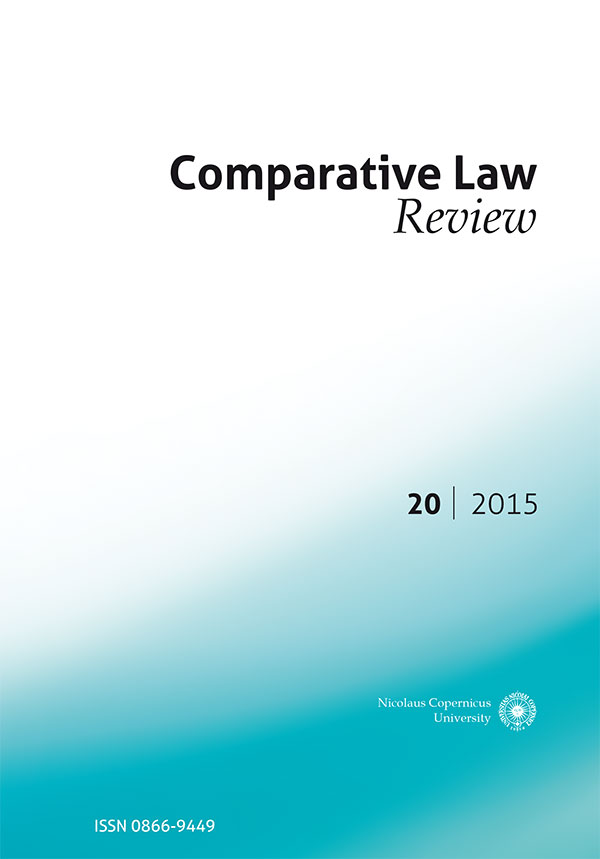The Nature of the Division into Public and Private Law, with Particular Emphasis on the Polish Experiences
DOI:
https://doi.org/10.12775/CLR.2015.010Keywords
division into public law and private law, public law contract, the non-dichotomous nature of the division into public and private lawAbstract
Rafał Szczepaniak generally agrees with the ideas expressed by some contemporary lawyers that the division of the legal system into public and private law is multifunctional and dependent on a wide variety of contexts, and that it is a non-dichotomous division. Although, according to Rafał Szczepaniak, the idea of non-dichotomous division is not particularly revealing as one can encounter similar statements in European jurisprudence made throughout the twentieth century, the merit of the above-mentioned lawyers is to draw attention to the momentous consequences of this idea, including in the sphere of human rights the protection of human rights against the undue interference of the state and that of other public bodies. The main thesis of the present article can be summarized by the assertion that the non-dichotomous division into public and private law has a significant impact on the outcome of the rulings of courts. The author draws examples from cases heard in Polish courts since for obvious reasons Polish legal practice is that best known to him. At the same time the Polish examples presented in the article prove that the distinction between public and private law is of universal importance regardless of whether we take into consideration the Polish legal system or the legal systems of the other European countries.
In conclusion, the author formulates the postulate de lege ferenda to distinguish a subset of private law regulating the activity of the administration.
Downloads
Published
How to Cite
Issue
Section
Stats
Number of views and downloads: 398
Number of citations: 0



